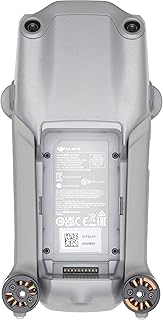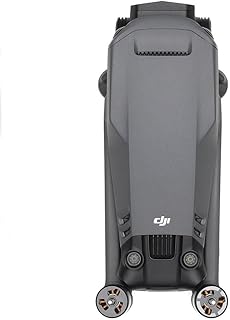Ethical Implications of RotorLogic Drone Technology: A Deep Dive
RotorLogic drone technology, with its advanced capabilities, raises significant ethical considerations that need careful examination. While drones offer immense potential in various fields, their widespread use also presents challenges concerning privacy, safety, security, and accountability.
Here's a breakdown of key ethical implications:
1. Privacy:
* Data Collection: Drones equipped with high-resolution cameras and sensors can collect vast amounts of personal data, including images, videos, and location information. This raises concerns about unauthorized surveillance and potential misuse of this sensitive information.
* Surveillance Without Consent: Drones can be deployed to observe individuals or locations without their knowledge or consent, infringing on their privacy rights. This is particularly problematic in public spaces where people may not expect to be under constant observation.
* Facial Recognition: Some RotorLogic drones may incorporate facial recognition technology, which allows for the identification of individuals from afar. This raises concerns about the potential for mass surveillance and misuse of personal data for discriminatory purposes.
2. Safety:
* Unmanned Operations: The autonomous nature of drones poses risks related to potential malfunctions, errors in programming, or hacking, which could lead to accidents or unintended consequences.
* Collision Risks: Drones operating in congested airspace, especially near airports or residential areas, increase the risk of collisions with other aircraft or objects.
* Data Security: Cybersecurity vulnerabilities in drone systems could lead to data breaches, compromising sensitive information or allowing malicious actors to control drone operations.
3. Security:
* Weaponization: RotorLogic drones can be equipped with weaponry, raising concerns about their potential use in conflicts or for targeted assassinations. This poses significant risks to civilian populations and global security.
* Cyberattacks: Drones can be susceptible to cyberattacks, allowing attackers to hijack control, disrupt operations, or access sensitive information.
* Misuse by Unlawful Actors: The ease of access to drone technology makes it possible for criminals or terrorist groups to acquire and use drones for illegal activities, including smuggling, drug trafficking, or attacks.
4. Accountability:
* Determining Responsibility: In case of accidents or misuse, determining responsibility can be challenging. It's crucial to establish clear legal frameworks and accountability mechanisms for drone operators and manufacturers.
* Lack of Oversight: The lack of consistent regulations and oversight across different jurisdictions creates a patchwork of standards that could lead to loopholes and uncontrolled drone use.
* Bias and Discrimination: Algorithms used in drone systems could reflect and perpetuate existing societal biases, leading to unfair or discriminatory outcomes.
5. Ethical Considerations in Specific Applications:
* Law Enforcement: Drone use in law enforcement raises concerns about excessive surveillance, privacy violations, and potential for racial profiling.
* Delivery Services: While drones offer potential benefits for delivery services, they also raise safety concerns related to package dropping and noise pollution.
* Agriculture: Drone use in agriculture can improve efficiency and reduce pesticide use, but it also raises questions about potential environmental impacts and worker displacement.
Addressing the Ethical Challenges:
To mitigate the ethical challenges associated with RotorLogic drone technology, stakeholders must work together to develop comprehensive ethical guidelines, regulations, and accountability mechanisms. This includes:
* Transparency and Data Privacy: Clear regulations on data collection, use, and storage are essential.
* Safety Standards and Certifications: Robust safety standards and certification processes are necessary to ensure reliable drone operations.
* Accountability Frameworks: Establishing clear legal frameworks for drone operations, including operator licensing, liability rules, and oversight mechanisms.
* Ethical Considerations in Drone Development: Integrating ethical considerations into the design, development, and deployment of drone systems.
* Public Education and Dialogue: Promoting public awareness and fostering dialogue about the ethical implications of drone technology.
By proactively addressing these ethical challenges, we can harness the potential benefits of RotorLogic drone technology while minimizing its risks to individual privacy, public safety, and societal well-being.


